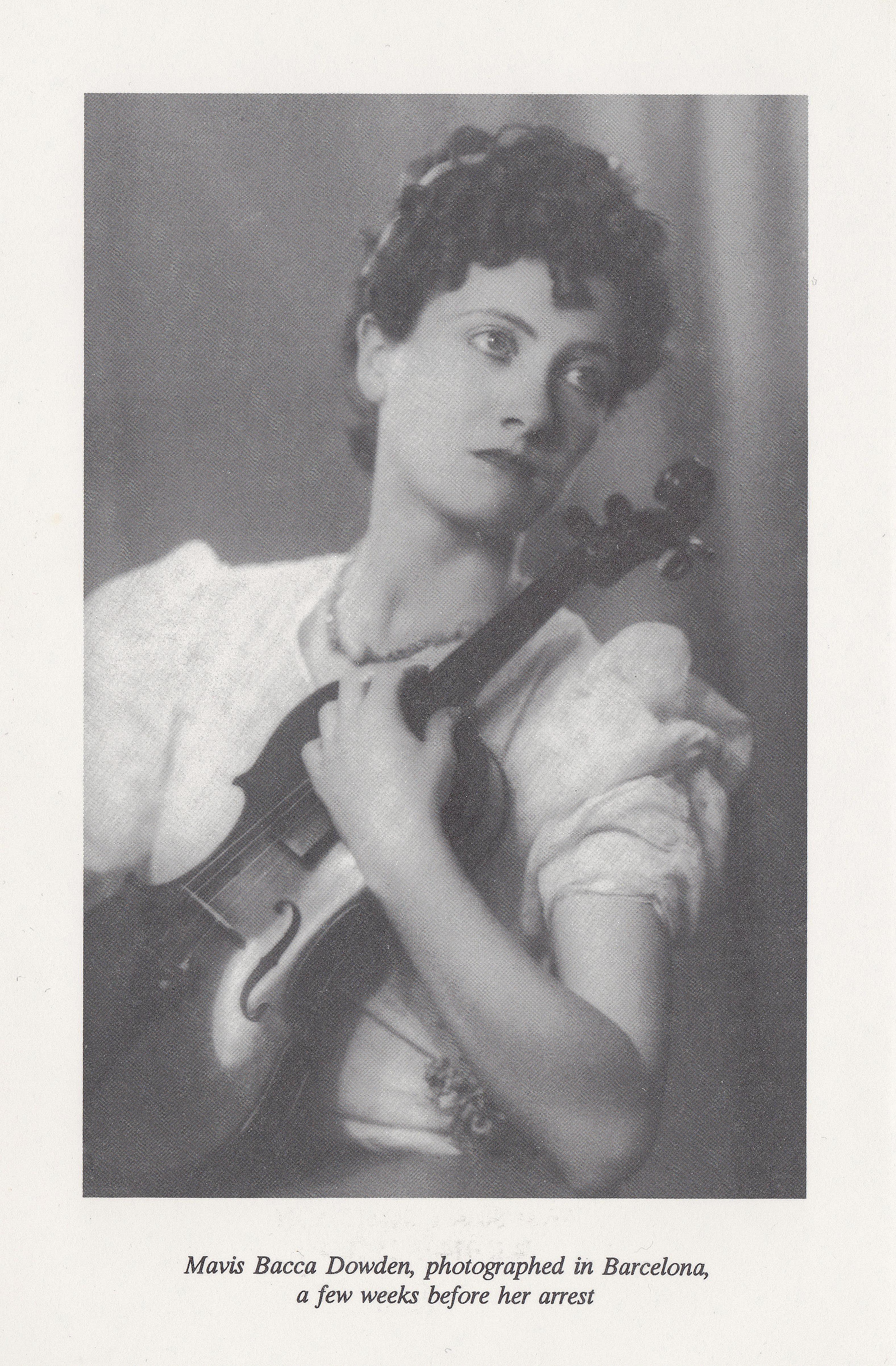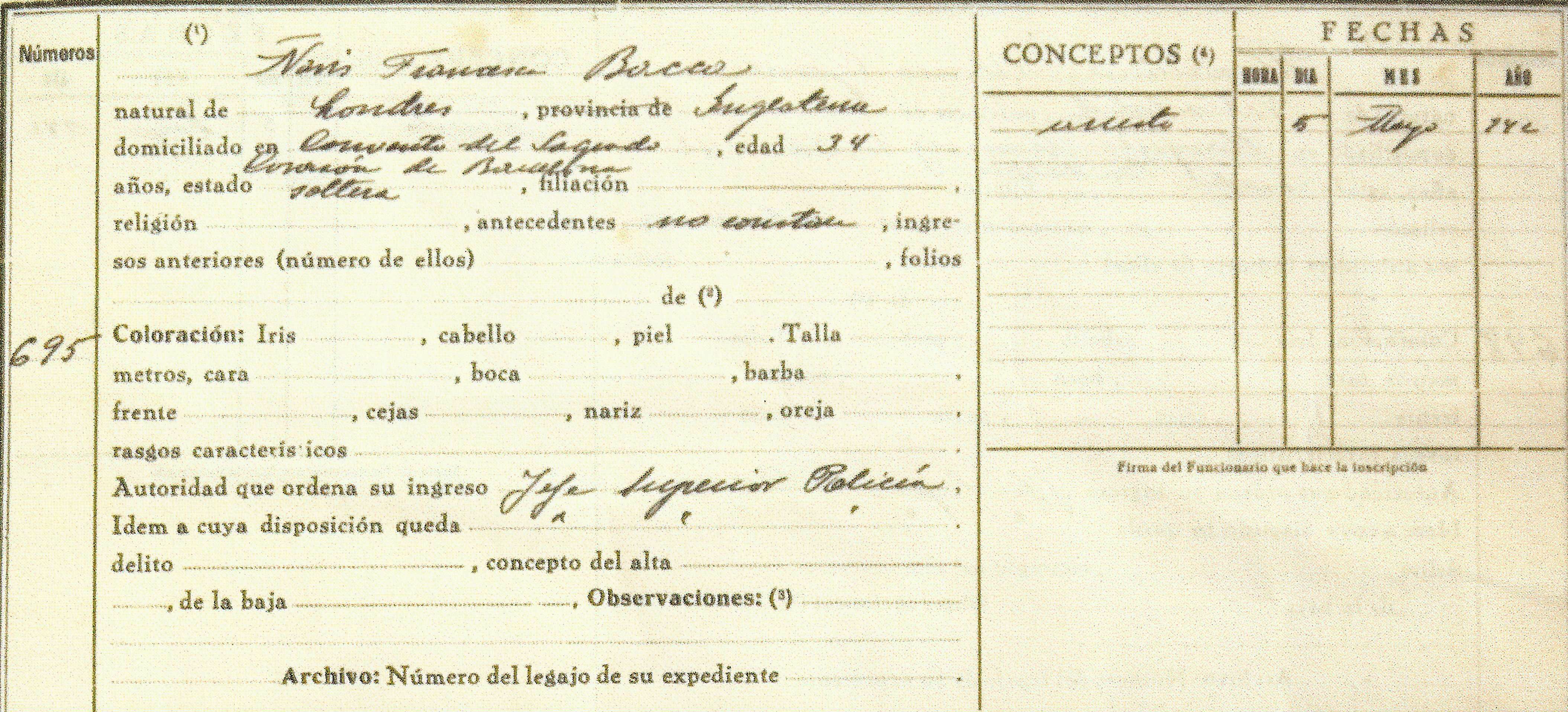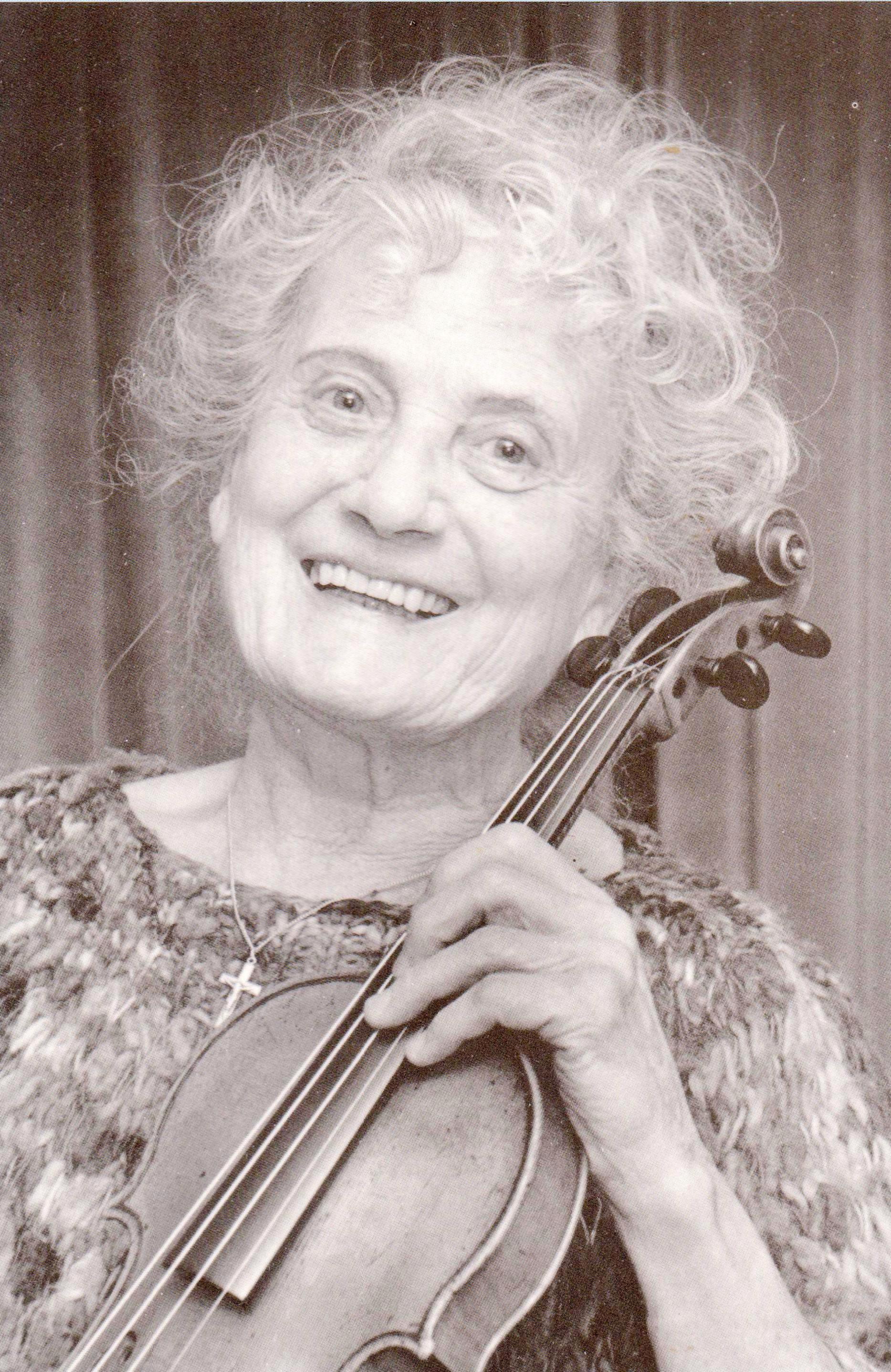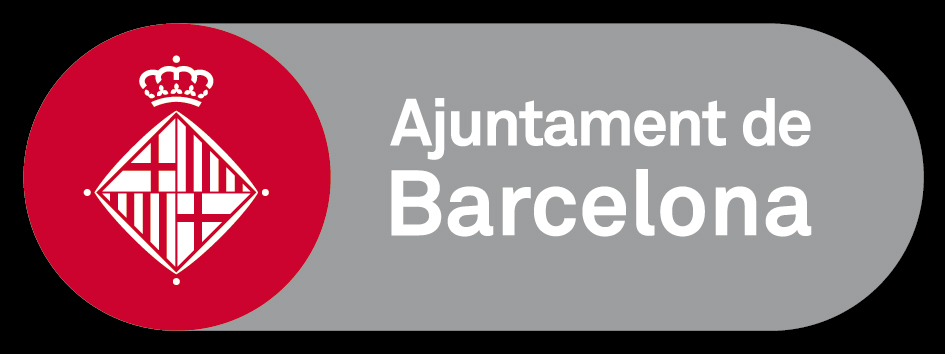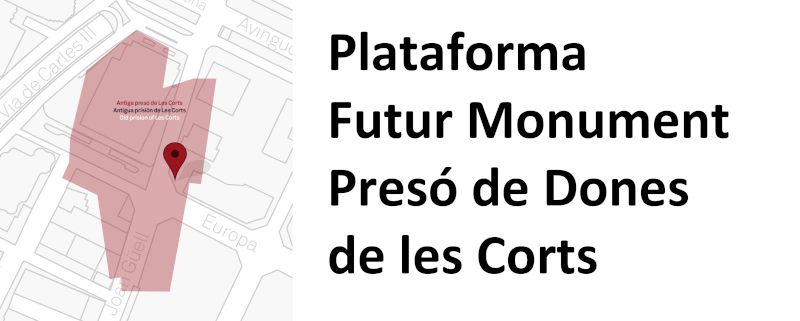From May 1940 a growing number of foreign detainees were arriving at Les Corts charged with "border trespassing”. They had been taken there from the French-Spanish border or the Figueres prison in the neighbouring province of Girona.
Most of them were Jews from Central Europe -German, Austrian, Polish– or "Israelites", as their entry records say. Almost all of them were listed as "passers-by" or "with no known address" and were escaping the war and Nazi occupation. By 1942 most of them were registered as Poles (23), which could be explained as a strategy devised by Jewish and politically persecuted women whose original citizenship had been revoked by the Nazis
Perhaps this was the case of the German Jewish Jenny Kehr Lazarus, arrested in Lérida, near the border, in October 1942.
Jenny had escaped the French camp of Gurs and had secretly crossed the Spanish border. After passing through many prisons -Seo deUrgell, Miranda de Ebro’s concentration camp, Logroño, Lérida- she arrived in Les Corts with an order of the Gobernador Civil of Lérida for her expulsion to France. After being admitted in the early hours of December 11, she was found hanging from her belt the following morning.
This version coincides with the one contributed by the social libertarian Rosa Mateu Segalés, a prisoner who was at the time working in the prison’s office. According to the testimony she gave to her daughter, Enriqueta Borrás, one of those "Polish" Jews had arrived very late at night from another prison, and, because of the late hour, it was decided to postpone her registration process to the following morning. When Rosa went to fetch her later that morning, she found she had hanged herself in the showers. There is no record of any Jenny Kehr in the prison files. According to Enriqueta, the inmates knitted a tablecloth, of a complicated pattern, and named it "el polaco" (“the Pole” in Spanish) in her memory.
The presence of Poles in Les Corts in 1942 was also attested by the English violinist Mavis Bacca Dowden, imprisoned on charges of espionage. Mavis had been collaborating with a clandestine network to aid Allied soldiers who had escaped across the Pyrenees.
A fervent Catholic, she would recall in her memoirs the words one of the Sisters of Charity of Saint Vincent De Paul said to her the day of her admission, after requisitioning a pack of cigarettes: " Nothing belongs to you in here, other than the food you eat, and not even that, because you are likely to vomit it ”.
Fonts: ARXIU HISTÒRIC DE GIRONA (AHG). Expedients de frontera, Legajo 12, Exp. 357; ARXIU NACIONAL DE CATALUNYA (ANC), Fons 200, Centre Penitenciari de Dones de Barcelona (CPDB), Llibre de registre de filiacions, UC 6559.
CALVET, J. (2008): Les muntanyes de la llibertat. El pas dels evadits pels Pirineus durant la Segona Guerra Mundial, 1939-1944. Barcelona; HERNÁNDEZ HOLGADO, F. (2011): La prisión militante. Las cárceles franquistas de mujeres de Barcelona y Madrid (1939-1945), Universidad Complutense de Madrid, Tesis Doctoral; SALA ROSE, R. (2011). La penúltima frontera. Fugitivos del nazismo en España. Barcelona; y ponencia en las Jornadas de debate La presó invisible, segona sesió, 9-10-2012; BORRÁS MATEU, E. (2004): ¿Qué pasó con los niños desamparados en la guerra? Barcelona; BACCA DOWDEN, Mavis (1991): Spy-jacked! A Tale of Spain. Horsham. Pulborough. SMH Books, y (1994): Acusada d’espia a la Barcelona franquista 1939/1943. Barcelona. Pòrtic; El sumari de Jenny Kehr, el suïcidi per fugir del nazisme, en Generalitat de Catalunya. Calaix [consulta: 01/06/2022]; Fugint de l’Holocaust. Jenny Kehr, en Museu d’História de Catalunya. Exposició [consulta: 01/06/2022].


